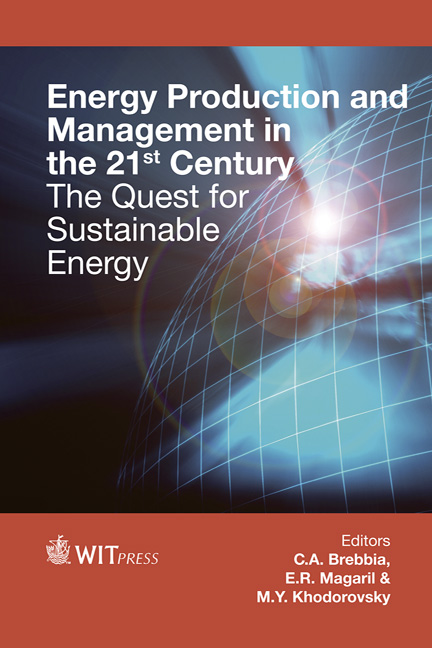Development Of An Integrated Passive Cooling Façade Technology For Office Buildings In Hot Arid Regions
Price
Free (open access)
Transaction
Volume
190
Pages
13
Page Range
521 - 533
Published
2014
Size
4117 kb
Paper DOI
10.2495/EQ140501
Copyright
WIT Press
Author(s)
A. Abu Khadra & N. Chalfoun
Abstract
Building envelopes play a major role in improving the overall energy efficiency as well as in providing a healthy indoor air quality for occupants in office buildings. The notion of this research is to develop an integrated façade technology that interacts and adapts with the changing climatic conditions, in hot arid regions, in order to improve occupants’ thermal comfort in mixed mode office buildings through the use of natural ventilation and evaporative cooling techniques, thereby reducing mechanical cooling energy loads. In this research, façade design decisions were based on two main computer simulation results; thermal comfort levels and the reduction in energy consumption. The authors propose a double skin façade system that consists of an external skin which works on multiple operating modes. This skin integrates passive cooling strategies with the building envelope depending on the data collected by external and internal sensors. My previous investigations showed that shading, natural ventilation and evaporative cooling are the most effective passive cooling strategies for hot and arid regions In conclusion, this research will contribute in reducing energy consumption in commercial buildings, and help provide a productive work environment. Keywords: passive cooling, arid regions, evaporative cooling, double skin facades, dynamic facades, thermal comfort, illuminance, glare, CFD simulation.
Keywords
passive cooling, arid regions, evaporative cooling, double skinfacades, dynamic facades, thermal comfort, illuminance, glare, CFD simulation.





